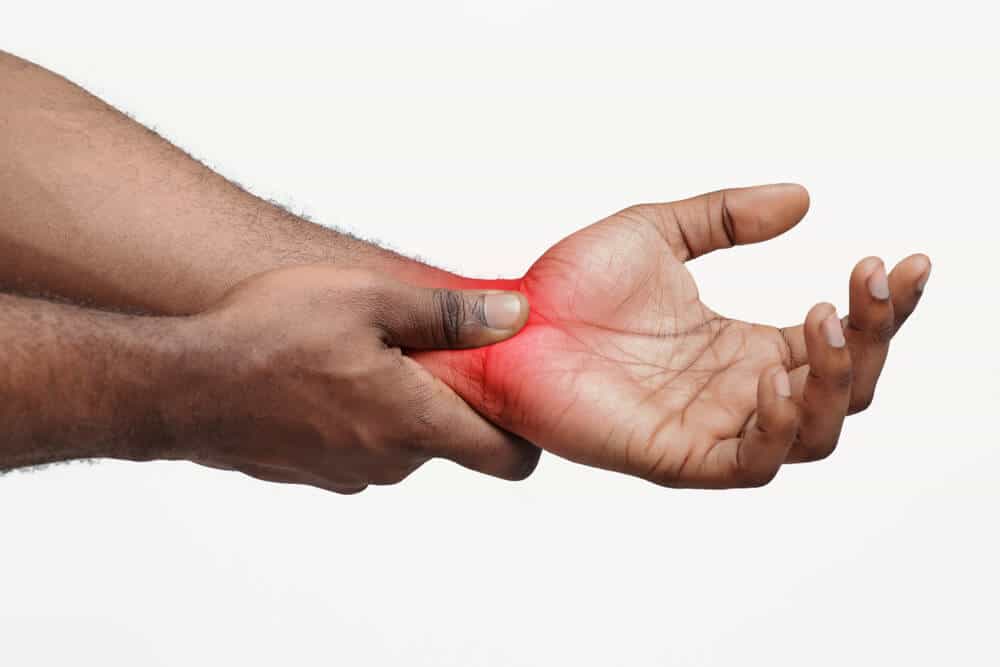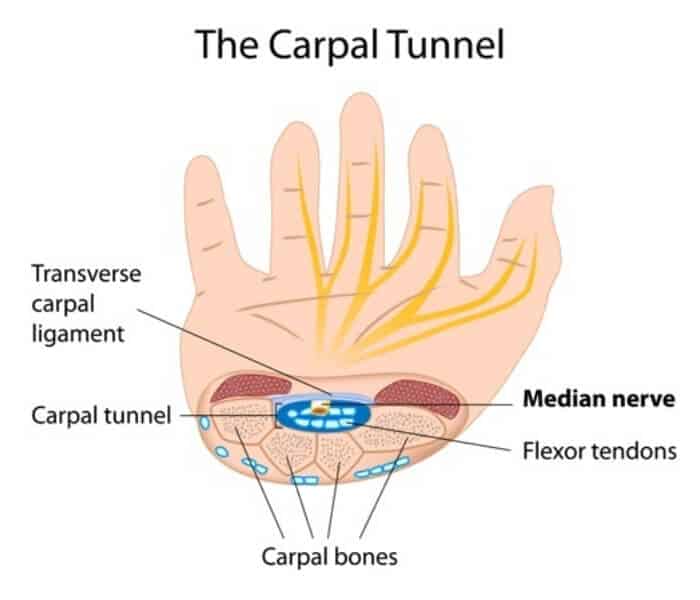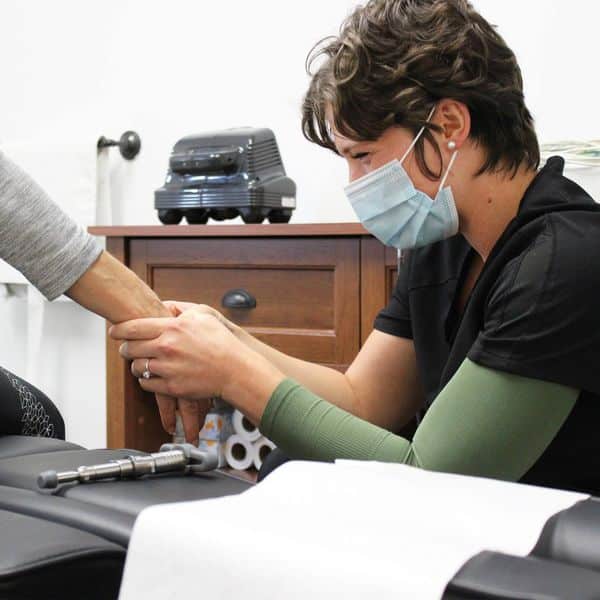
Carpal tunnel syndrome is a painful and common condition affecting the median nerve in the hand. It causes pain, numbness, and tingling in the fingers. The American College of Rheumatology estimates that four to 10 million Americans have carpal tunnel syndrome. If you suffer from these problems, you should consider carpal tunnel treatment in Fort Wayne to get relief.
This disease impacts people who work with their hands, such as data entry clerks, typists, bookkeepers, assembly-line workers, or others who make repetitive motions all day using their hands and wrists. You can also get carpal tunnel from simple things, like doing too much weed-pulling in your garden.

Carpal tunnel syndrome (CTS) comes from compression of the median nerve in the wrist. The median nerve runs from the forearm to the hand. This nerve creates sensations in the thumb and the first three fingers. Compression of the median nerve may lead to pain, numbness, tingling, and weakness in your hands and fingers.
The most common carpal tunnel causes are repetitive wrist motions, such as typing or using a mouse. Other causes include arthritis, fractures, tumors, and conditions that lead to swelling in the wrist. Pregnancy may also cause CTS due to the extra weight and fluid retention, putting more pressure on the median nerve.
The most common symptoms of carpal tunnel syndrome are pain and numbness in the hand and wrist. The pain may radiate down the wrist to the hands and fingers. Weakness and tingling in the hand and fingers may also be present. In some cases, people experience decreased grip strength and loss of finger dexterity as carpal tunnel symptoms.
If you continue to do repetitive work, this might become more painful and cause more damage. To avoid permanent nerve damage, seek treatment rather than continuing the activities causing the problem.

A diagnosis of carpal tunnel syndrome is only possible after a physical examination and perhaps an X-ray. The doctor will look for evidence of swelling or tenderness in the wrist. He may ask you to do certain movements as a nerve compression test. As part of the comprehensive carpal tunnel treatment in Fort Wayne at the North East Chiropractic Center, the doctor may order an MRI or a nerve-conduction study to check for nerve damage.
The best way to prevent carpal tunnel syndrome is to reduce the injuries to your wrists. This strategy may include wearing a wrist brace while typing, using a split keyboard or ergonomic mouse, taking frequent breaks throughout the day, and avoiding repetitive motions.
Examples of exercises that may help with carpal tunnel syndrome include wrist stretches and finger/wrist strengthening exercises. Stretching may gently bend the wrist and rotate the joint. Finger exercises may involve making a fist and then opening and closing the hand. Strengthening exercises might include squeezing a stress ball or using a hand grip.

Chiropractic care for carpal tunnel can be a very effective treatment for carpal tunnel syndrome. Our carpal tunnel doctor in Fort Wayne will look for evidence of swelling or tenderness in the wrist. Your doctor may also recommend exercises to help strengthen and stretch the muscles in the wrist and hand. Sometimes, we may use massage and other treatments to reduce inflammation and pain.
Carpal tunnel syndrome is a painful and potentially debilitating condition affecting the hand's median nerve. While it can be prevented with proper ergonomics and taking breaks during the day, chiropractic care is an effective treatment for carpal tunnel syndrome.
At North East Chiropractic Center in Fort Wayne, we offer comprehensive carpal tunnel treatments to help reduce pain and inflammation and restore full function. Our experienced chiropractors use a combination of realignment, massage, and strengthening exercises to help relieve your pain and get you back to doing what you love. If you, or someone you love, suffers from this condition, contact us at North East Chiropractic Center to get carpal tunnel treatment in Fort Wayne.
Monday 8:30am – 6:00pm
Tuesday 9:00am – 4:30pm
Wednesday 8:30am – 6:00pm
Thursday 8:30am – 6:00pm
Friday 9:00am – 4:00pm
Saturday 8:30am – 12:30pm
Sunday Closed